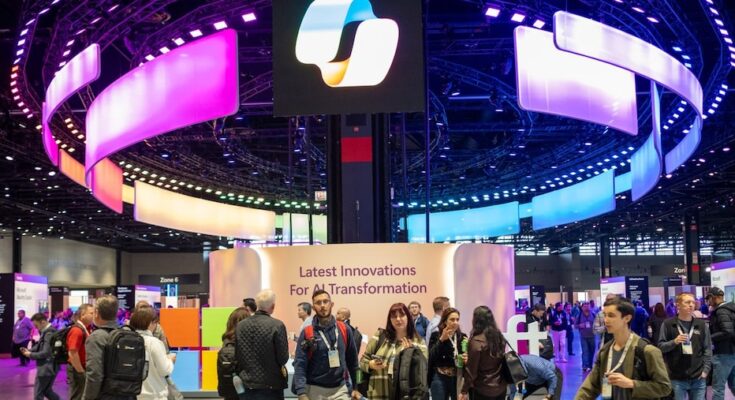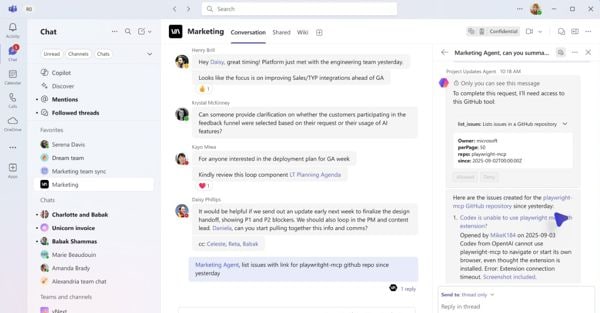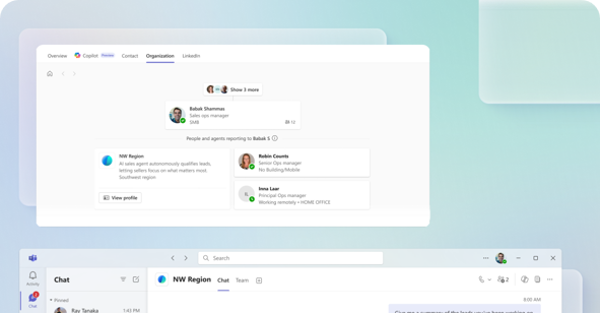The 2025 edition of Microsoft Ignite, an international event that annually brings together thousands of professionals from the technology community to discuss digital transformation, is considered by many to be an important, even crucial, moment in the Redmond company’s strategy to consolidate artificial intelligence at the heart of its entire ecosystem. The speeches expected to be delivered on stage at the Moscone Center in San Francisco from November 18 to 21 will be attended by what Microsoft calls “Frontier Companies,” namely companies that want to go beyond simply using AI tools to create new intelligent enterprise architectures and who want to manage algorithm-driven innovation and LLM models by putting responsibility, control, and security at the center. The Satya Nadella-led company’s mantra regarding the role of Gen AI is well known and revolves around an end-to-end vision: it’s no longer just about integrating Copilot into individual products, but making intelligent agents, applications, and data communicate in a powerful platform completely dedicated to productivity and collaboration.
AI agents serving “frontier businesses”
Copilot, in Microsoft’s strategy, is confirmed as the main axis of enterprise AI transformation (more than 90% of Fortune 500 companies currently use it) and is no longer just a support as a conversational assistant. Its new “dimension” is a set of intelligent agents capable of operating autonomously, built, as Microsoft specified, specifically to support the “Frontier Enterprise” model, a model that is an initiative launched in collaboration with the Digital Data Design Institute at Harvard dedicated to equipping managers of large multinational companies with the skills necessary to transform their organizations into “leading companies”. The concrete explanation of this strategy is divided into several levels. Copilot Studio, for example, becomes the main laboratory where companies can model their agents without requiring the skills of a data scientist: thanks to low-code or no-code tools, in fact, it is possible to build assistants to whom you can entrust operational processes at the level of customer service, legal issues or financial reports. All agents are clearly interconnected with each other in a multi-agent orchestration logic, which enables collaboration on complex tasks and logging of every interaction and decision to guarantee total traceability. Another pillar of Copilot’s evolution concerns security: each agent has a secure identity and operates with short-lived credentials, reducing the risk of compromise. No less relevant is the leap forward that Microsoft promises to companies in terms of productivity. The copilot, in this sense, becomes an active protagonist in the daily workflow because it can synthesize text, plan activities, generate documents and perform repetitive tasks across multiple systems. And all this is securely managed with respect to the logic of an intelligent agent ecosystem that redefines the concept of automation with artificial intelligence.
The announcement for Microsoft 365 Copilot: Work IQ has arrived
Every company – as highlighted by Jared Spataro, Chief Marketing Officer AI at Work at Microsoft – is on a journey to become a leading reality driven by humans and operated by agents and on this transformation journey they are redefining the way they work, empowering every employee with intelligent assistants and reinventing business processes with the help of these agents. During Ignite 2025, several new features of Microsoft 365 Copilot will be announced, designed to help every company become a “Frontier Firm” and the main one is Work IQ, the availability of Agent Mode in Office applications and Agent 365. The first, as Spataro defines it, is the level of intelligence that allows Copilot to fully understand the user, his job and his company: in particular, we are talking about all the information contained in emails, files, meetings and chats that structure how certain tasks are performed and the ability to save work styles, preferences, habits, flows, and relationships and combine all this data to create connections, uncover insights, and predict the next best action. To simplify the concept, Copilot suggests the most suitable agents for the task at hand based on the specified command and intent. Work IQ is integrated into everyday applications (such as Word, Outlook and Teams) and thanks to it Copilot is constantly learning to offer an increasingly personalized user experience.
More intelligence and security in every Office app
The introduction of new agents in the suite of applications, however, will allow you to create different types of content both from Copilot chat and from applications: in Excel, for example, you will be able to choose between Anthropic and Open AI reasoning models while in Outlook it will be easier to manage your inbox and calendar with voice commands, read and respond to emails via commands such as “summarize and reply” and schedule meetings, all directly from your smartphone. Finally, Agent 365 is a means of control for agents, allowing them to be managed with greater reliability and security. Microsoft started from the assumption that these tools had changed the way things work (IDC estimates 1.3 billion agents operating on a global scale by 2028) and with these “additions” Microsoft expanded the orchestration infrastructure to place it in the hands of human operators. You will then be able to register all the agents of the organization in a single resource, limit their access to only the necessary resources, visualize relationships with people by monitoring performance and behavior in real-time and, in any case, protect these tools from threats and vulnerabilities. Microsoft’s stated goal, which was further emphasized during Ignite, is essentially to overcome the logic of being reactive to incidents, transforming enterprise teams into entities capable of anticipating risks and intervening in faster and more informed decision making. To do this, a step forward is the inclusion of Microsoft Security Copilot in Microsoft 365, an integration that allows you to have natively available agents in Defender (fully revisited in light of the “agent” SOC notion), Entra, Intune, and Purview (which is evolving into a unified data security platform designed for environments where information and AI agents move seamlessly) and to be able to leverage their capabilities to speed up investigation processes, optimize identity management, and simplify device governance. In security, Microsoft offers twelve agents created “in-house” and more than 30 agents developed by partners to broaden coverage across its security portfolio of operational tasks, from threat intelligence to incident analysis. With a very specific underlying goal: to shift the center of gravity of security to automated and predictive practices driven by AI.
Windows Evolution: a platform for smart work
The 40th anniversary of Windows couldn’t help but be part of a series of new announcements and the Ignite event actually served Microsoft executives to reiterate how the operating system should now be understood no longer simply as a software environment hosting applications but as a general-purpose platform for intelligent work. Windows, simply put, is still evolving into a “canvas” for artificial intelligence, where tools, models, and automation coexist in an integrated security and governance architecture. At the heart of this strategy is the introduction of native infrastructure for agents, a set of services that allows Copilot and third-party systems to operate securely on files, applications and system functions. New features, such as agent connectors based on Model Context Protocol and Agent Workspace, mark the transition from an application approach to a structural approach: agents become Windows components, with their own identities, limited permissions, and fully traceable flows. Agent Workspace, in particular, creates an isolated and controlled environment, where agents can perform parallel tasks without interrupting user sessions; each action is associated with a distinct identity, ensuring visibility and operational responsibility. Microsoft considers it a “capability” and a key element to ensure the necessary level of trust (and therefore adoption) in an enterprise-class context. This integration logic obviously also extends to the cloud via Windows 365 for Agents, which gives developers the ability to choose between running locally or in the cloud without changing their agent logic. The overall vision of the new frontier of digital work according to the Redmond giant is quite clear: the new Windows is not just an AI-enabled operating system but aims to be a unified platform for the execution of intelligent agents and the development of AI-native applications.




